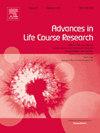延迟过渡到成年和辅助生殖:西班牙教育差异的研究
IF 3.4
2区 社会学
Q1 Medicine
引用次数: 0
摘要
在生育率低的国家,特别是在受过高等教育的妇女中,向成年过渡的时间日益推迟,这对尝试怀孕和生育的时间有重大影响。延迟生育增加了不孕症的风险和对辅助生殖技术的依赖。近几十年来,西班牙在向成年过渡方面经历了明显的延迟,同时抗逆转录病毒治疗的使用也大幅增加。本研究采用生命历程方法来研究延迟过渡到成年、使用ART的可能性和ART后实现活产机会之间的关系,考虑到年龄和教育程度的差异。根据2018年西班牙生育调查(SFS 2018)中12930名年龄在24-55岁之间的女性的样本,事件历史分析显示,较晚的首次稳定就业与使用抗逆转录病毒治疗的可能性较低有关,特别是对于没有受过大学教育的女性。相反,较晚的住房独立和较晚的同居伙伴关系-直到35岁左右-与使用抗逆转录病毒治疗的可能性较高有关。在抗逆转录病毒治疗的使用者中,实现活产的可能性随着年龄的增长而显著下降,但在受过大学教育的妇女中下降的幅度较小。向成年过渡的时间与抗逆转录病毒治疗后实现活产的可能性无关,但离开父母家或进入伴侣关系特别晚的妇女除外,她们成功的可能性较小。总的来说,研究结果表明,抗逆转录病毒治疗在减轻延迟过渡到成年期和生育的影响方面能力有限,特别是对受教育程度较低的妇女。本文章由计算机程序翻译,如有差异,请以英文原文为准。
Delayed transitions to adulthood and assisted reproduction: A study of educational differences in Spain
Transitions to adulthood are increasingly delayed in low-fertility countries, particularly among highly educated women, with significant implications for the timing of attempts to conceive and parenthood. Delayed childbearing increases the risk of infertility and the reliance on assisted reproductive technologies (ART). Spain has experienced pronounced delays in transitions to adulthood alongside a substantial rise in ART use over recent decades. This research adopts a life course approach to examine the association between delayed transitions to adulthood, the likelihood of using ART, and the chances of achieving a live birth following ART, accounting for variations by age and educational attainment. Based on a sample of 12,930 women aged 24–55 from the 2018 Spanish Fertility Survey (SFS 2018), event-history analyses reveal that late first stable employment is associated with a lower likelihood of using ART, particularly for women without university education. Conversely, late housing independence and late coresidential partnership – up to the mid-30s – are linked to a higher likelihood of using ART. Among ART users, the likelihood of achieving a live birth decreases markedly with age, but declines less sharply for university-educated women. The timing of transitions to adulthood and the likelihood of achieving a live birth after ART are not related, except among women who left the parental home or entered a partnership particularly late, who are less likely to succeed. Overall, the findings suggest that ART offers limited capacity to mitigate the effects of delayed transitions to adulthood and fertility, especially for less educated women.
求助全文
通过发布文献求助,成功后即可免费获取论文全文。
去求助
来源期刊

Advances in Life Course Research
SOCIAL SCIENCES, INTERDISCIPLINARY-
CiteScore
6.10
自引率
2.90%
发文量
41
期刊介绍:
Advances in Life Course Research publishes articles dealing with various aspects of the human life course. Seeing life course research as an essentially interdisciplinary field of study, it invites and welcomes contributions from anthropology, biosocial science, demography, epidemiology and statistics, gerontology, economics, management and organisation science, policy studies, psychology, research methodology and sociology. Original empirical analyses, theoretical contributions, methodological studies and reviews accessible to a broad set of readers are welcome.
 求助内容:
求助内容: 应助结果提醒方式:
应助结果提醒方式:


